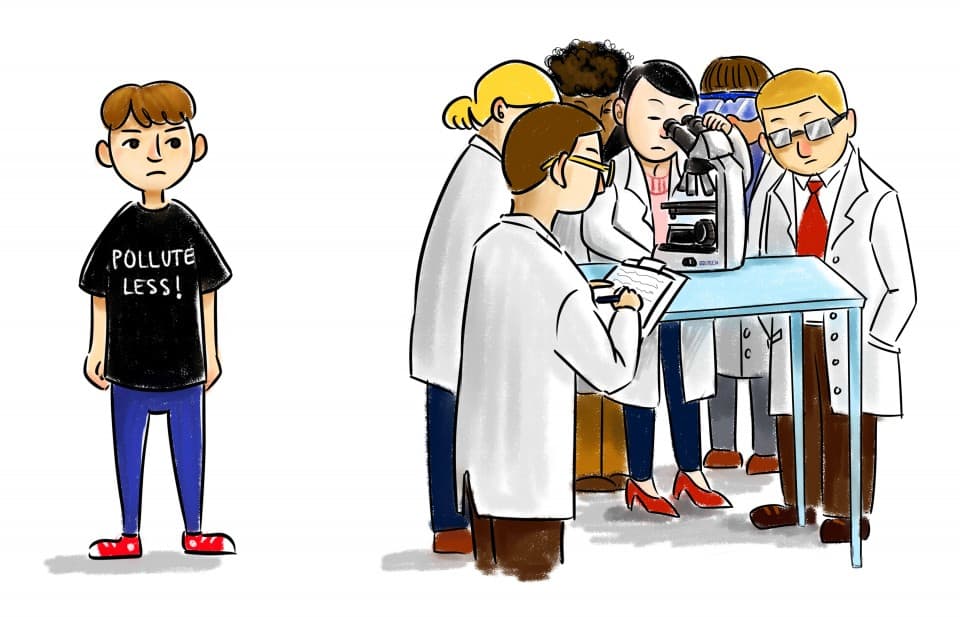After reading “Art vs. Science” in The Varsity earlier this month, I realized just how scientifically illiterate I am. “Yo,” I texted my sister, who studies engineering physics, “Are electrons smaller than atoms?” Needless to say for any science students reading this, the answer was a resounding (not to mention incredulous) “yes.”
Given the myriad of ways that science shaped and improved modern society, it is imperative for arts students like myself to gain a better scientific understanding of how the world works. In return, the knowledge generated in the humanities also has important value for many scientists. As such, it is unfortunate that the increasing celebration of scientific inquiry often comes at the expense of these subjects. Most notably, philosophy is often described as useless or too abstract — unconcerned with the “real world.”
Take, for instance, Stephen Hawking and Leonard Mlodinow’s declaration in their 2010 book The Grand Design that “[P]hilosophy is dead… [s]cientists have become the bearers of the torch of discovery in our quest for knowledge.” With a similar confidence in scientific knowledge, Peter Atkin’s 1995 essay titled “Science as truth” proclaims: “[S]cience is the best procedure yet discovered for exposing fundamental truths about the world…No other mode of discovery has proved to be so effective or to contribute so much towards the achievement of the aspirations of humanity.”
Such faith in the power of science can be seen on our campus as well. I remember being incredibly excited this summer after securing a spot in PHL373, an ethics course on climate change, only to have a peer contemptuously comment: “That’s stupid. Science already tells us what to do on the issue.”
Certainly, not all science students express such hubris. Yet, science’s emphasis on empirical evidence and highly controlled, reproducible tests makes it appear to be the most useful tool for improving society. In fact, this hierarchy of knowledge creation is found within the faculty of arts itself — as a student of political science, I initially fell prey to the belief that the more “scientific” nature of my program made it an objectively better pursuit than philosophy.
Consequently, it bears reminding that scientific inquiry is unable to answer crucial moral questions in our lives. Consider my peer’s initial derision of environmental ethics — science, in fact, cannot actually tell us what to do about climate change. Science can show, with great accuracy and certainty, that there have been dramatic changes in the earth’s greenhouse gas concentration in the last century. It can even pinpoint humans as the cause of global warming, and predict consequences such as rising sea levels, not to mention freakish weather events, all of which will lead, one way or another, to a loss in biodiversity, mass migration, failed agricultural seasons, and severe decreases in public health.
But these are not value judgements about the desirability of climate change; they are merely descriptions of what is happening, or going to happen. They do not answer why climate change is negative, or why should we do anything about it.
Perhaps nature has intrinsic value, and climate change represents our unwarranted exploitation of it. Alternatively, climate change will create increased conflict over scarce resources, which poses grave threats to international stability and harmony. There is also a lot to be said about how climate change infringes upon future generations’ right to life, health, and subsistence. Yet, regardless of which stance is adopted, they are all clearly based on philosophical principles, which cannot be derived in a scientific experiment.
Granted, it may seem painfully obvious to most people that climate change requires some sort of action. Science lacks prescriptive power, however, as to what exactly our responsibilities to combat climate change should look like.
Do richer countries with a historically greater role in producing greenhouse gases bear a greater burden to mitigate the damages of pollution? Or do the biggest emitters today — that is, poorer, “developing” countries — have disproportionate obligation to solve the problem? Are governments allowed to criminalize environmentally unfriendly behaviour? What punishment, if any, should should be inflicted upon nations who do not abide by international climate treaties?
These moral questions are still being debated, and require battles between various theories of efficiency, equality, justice, historicism, and statism. Similarly, other crucial issues in society — including abortion, online privacy, citizenship rights, freedom of speech, stem cell research, and euthanasia — require philosophical, not merely scientific, discussions.
I will always hold a deep appreciation for scientific inquiry and discovery — it imbues us with a sense of control over the natural world, which otherwise seems full of random chaos. Nevertheless it is only with the help of philosophy that we can truly evaluate and improve a society’s progress.


